Bob Mosley - Bob Mosley 1972 Record Reworked and ready for release Dec 6, 2024
Bob Mosley
Bob Mosley
Reworked, remastered and re-released — at last!
The list of artists who cite 1960s rock legends Moby Grape as an influence is unsurprisingly diverse. After all, the Northern California combo consisted of five gifted songwriters whose unique creative sparks came together as a cohesive whole. Although shady business dealings ultimately undid Moby Grape by 1971, each of the band’s members might have gone on to long careers, if not outright stardom. That’s certainly what should’ve happened for bassist and singer Bob Mosley, who released his eponymously titled Warner Bros. solo debut in ’72.
The eleven tracks recorded for the album sure packed a wallop. Mosley had given the Grape its rugged, bluesy aspect, and his own LP went that way, full-throttle. Unfussy songcraft with forthright lyrics suited Mosley’s deep, powerful voice—through straight-up rockers like “The Joker,” the propulsive pop of “Let The Music Play” and “Squaw Valley Nils,” and the groovy-greasy, horn- swaggled soul of “Gypsy Wedding.” The sessions captured the bouncy R&B of “Nothing To Do” and the plaintive yearning of country-tinged “Thanks.” With “Hand In Hand,” Mosley brought a tough edge to an unabashed love song, while “So Many Troubles,” the moving closer, was swathed in haunting keyboards and woe-begotten guitar.
Muscular musicianship came from a core group around Mosley on bass: drummer Alllen Wehr and guitarists Woodie Berry and Frank Smith. The sessions also boasted the Memphis Horns and pedal steel by Ed Black. So how could such strong tunes and stellar playing result in a record that didn’t soar to the top of the charts, satisfying Moby Grape fans and new listeners alike?
To answer that question, let’s go back to the list of artists mad for Moby Grape. Along with Robert Plant, Little Steven, Beck, Chrissie Hynde, Cat Power and Jeff Tweedy is singer/songwriter/producer John DeNicola. “As a big Moby Grape fan, I anticipated any solo records from the band members, and I got this LP as soon as it came out,” DeNicola recalls. “I listened to it recently and thought the low end of the bass and drums were thin, making the overall sound of the songs less than ideal. I thought, ‘If I could only get my hands on the original multitrack, I would love the opportunity to remix it—better balance the rhythm section with the rest of the music to make it sound as it should. It’s there, it just needs a boost.’”
If anyone knows how things should sound, it’s John DeNicola. In the 1980s, he wrote the music for both monster hits from the Dirty Dancing soundtrack, “(I Had The) Time Of My Life” and “Hungry Eyes,” earning an Academy Award and a Grammy nomination. In the ‘90s, his ears for talent led him to discover a baby band called Kara’s Flowers, who later changed their name to Maroon 5. Via his boutique label, Omad, he not only releases his own solo work, he produces a spectrum of artists in different genres—the only connective tissue being that DeNicola digs them. What’s more, though an accomplished multi-instrumentalist himself, DeNicola had been a bass player in his early bands, so he had a particular interest in doing right by Mosley. “Bob was one of the most influential rock bassists of all time, and for a bass player’s record to be light on bass is not optimal,” he deadpans.
Clearly, DeNicola was the ideal person to help Bob Mosley fulfill its sonic promise. Trouble was, the original multitrack—which would have let him literally start from scratch with a full-on remix—was
missing. DeNicola didn’t let that stop him, however, obtaining instead the master two track DDP file from Warner Bros. “With that, I was able to ‘de-mix’ the record, separate out the drums, bass and vocals using a combination of AI programs, and then get the bass and drums up in volume. Not a complete remix, no, but I was able to balance the rhythm section with the music, resulting in a fuller sound.”
Now, Omad is releasing Bob Mosley on CD (consult any hipster—the format is coming back!) and potentially on vinyl as well. “I’m really happy with it,” DeNicola says. “I think it sounds the way it was originally intended to, and it feels great to give people an opportunity to hear Bob’s masterpiece the way it never really was before.”
Perhaps the best news? All profits from the record will go to Mosley, a former Marine who has had his share of struggles off and on during his 81 years on the planet. “Bob’s actually doing well these days, living in California with his lovely wife Connie,” DeNicola says. With his first solo album getting a whole new life, Bob Mosley can finally encourage listeners to do what he asks on “The Joker,” the opening track: “Understand and believe my worth, hear what I have to say.”

Peter Lewis

ORDER IMAGINATION -Peter Lewis HERE
“We are all beings who want to live forever but know we won’t. Although this is a predicament everyone must learn to accept, the different ways in which we spend our time trying to cope with our mortality don’t always lead to a common sympathy between us, but to conflict and profound suffering. Yet in the end all we really have in the whole wide universe is each other and that is what this CD is trying to point out” – Peter Lewis
That comes through crystal clear on Imagination, a new collection of singular songcraft that could only spring from the creative consciousness of Peter Lewis. founding member of the legendary San Francisco rock group Moby Grape. Consider the driving, chiming “Path of Least Resistance,” as radio ready as a rocker can be despite its fierce philosophizing, and “If I Just Had You,” which spins incandescent longing into perfect doo/wop. Delicate guitars and lilting, uplifting harmonies are the warm embrace of “When You Come Back to Me” while pensive piano carries the earnestly heartening “Without You.” Impossible to peg, Lewis also lets loose with a country waltz (“The Garden Song”), a flamenco-influenced tragedy (“La Mujer”) and a jazzy, trippy nightmare (“Frank Zappa’s Ghost”).
With his voice in fine fettle, Lewis serves each song—bright and delicate here, gravelly and aching there, even roaring when required—through lyrical themes that ponder mortality versus eternity, illusion versus reality. The 10-track long player is his second release on OMAD Records, a follow-up to 2019’s The Road to Zion, and it marks a deeper collaboration with John DeNicola, main man of the bespoke label. “The songs on Imagination, like those on The Road to Zion, attempt to reveal a certain perspective about life,” Lewis says. “But on The Road to Zion, this perspective was highly personal, whereas working with John on Imagination, we sought a perspective we might share with everyone.”
“Any music I get involved with, I hope that people will relate to and be moved by,” says DeNicola, the Grammy-nominated, Oscar-winning songwriter and producer best known for his hits from the film Dirty Dancing—including “(I Had) the Time of My Life,” perhaps the most relatable, not to mention romantic, pop song ever penned. “A lot of the songs on Imagination will be right up there with classics Peter has written, back to his time as a founding member of Moby Grape—one of my all-time favorite ‘60s-era bands—like ‘Fall On You,’ ‘I Am Not Willing’ and ‘Apocalypse,’ His lyrics are always real, first hand and heartfelt, and I think people will feel his sincerity when they hear these new songs.”
They’ll also feel the musicianship. Imagination is a guitar-forward record, with both Lewis and DeNicola reaching out to such friends as Jonathan McEuen, Rob Bailey and George Adrian, whose top-tier talent rounded out their own playing. “The guitarists on this record were not chosen for the number of notes they can cram into one measure, but for being at the right time and place with the notes they played,” Lewis points out.
Also at that echelon are drummers Brian Delaney, Tommy Allen and Don McCauley, plus Alan Zahn on piano, Jeff Elliot on trumpet, Marc Muller on pedal steel and Randy Tico on bass. And though the record was largely achieved by trading tracks back and forth from the west coast to the east, the genuine emotion and immediacy of the sound belies technological quilting. “The process allows for on-second-thought chances to make the music better,” Lewis says. “The trick is in not overworking it, in keeping all the players in a creative mood until you’ve made your point and knowing when it’s time to move on.”
Now it’s time for listeners to enter Peter Lewis’s Imagination. What insights you glean from the words, what spirit you hear in the sound, what it makes you think and feel—about dreams, doubt and deception, life, love and the everlasting—will be yours alone. All Lewis will suggest, in terms of a shared experience, is a favorite line from Lost Horizon: “‘There are moments in every man’s life when he glimpses the eternal.’ I have been searching for this glimpse all my life and my sincere wish is that anyone out there searching for it too might find hope for their journey in this record.”

simple “audio” video

Peter Lewis CD "The Road To Zion"
Early in his long and winding odyssey, Peter Lewis played a crucial part in the creation of that rare beast, the perfect rock & roll album: Moby Grape, a legendary union of guitars, voices and brotherhood made in a now-distant American age, the psychedelic San Francisco of 1967. Many miles later, Peter has made his best record as a singer, songwriter and spiritual explorer: The Road to Zion, new stories of wanderlust, fortune, trial and committment that still carry the living glow and redemptive power of that great band. The first steps here – the title song's haze of dreamy guitars and gentle vocal assurance – sound as if Peter has just returned from the original trip. But like his best songs for the Grape – "Sitting by the Window" on that first LP; "He" on 1968's Wow; the gorgeous Moby Grape '69 miniature "What's to Choose" – the day-glo-country twang of "Down by the Water" and the jangling march "In This Place" come with a kick inside: the cycle of sorrow and lessons that, in time, lead to light. The circular haunting in "Nobody's Love" is the past in a bracing, present tense – Peter wrote it with Grape-guitar brother Jerry Miller – while the taut explosion of 12-string soloing in "Journey to the Crossroads" brings Peter's guitar gifts to the fore. Count the years on the way to The Road to Zion, and you find an astonishing statistic: It is only Peter's third solo album. But he never lost the path or mission. "I know we'll meet again, this you can rely on," Peter promises in "The Road to Zion." Relish the searching and ringing guitars here, until the next time.
David Fricke
May, 2019
Robert LaRoche Forevermore
Robert LaRoche
Forevermore
Forevermore, the adverb, means eternity, always, forever—yet on Forevermore, the album, Robert LaRoche expresses each of its exquisite musical love stories in some three minutes or less “I’m a firm believer in less is more,” he says. “Simplicity, memorable hooks, and straight from the heart.”
It’s an ethos of song craft LaRoche has practiced throughout his career: during the Eighties and Nineties, as the frontman for power pop sensations The Sighs, and as a solo artist. With Forevermore, his second full-length release, he’s created a tuneful travelogue through just about every romantic landscape us human beings can visit. “Love, loss, redemption and most importantly hope are the basic essence of these songs,” he says of the record’s running theme.
This becomes sparkling clear, from the chime-y, harmony-heightened charm of “Steal Your Heart” and “Home Again” onto the plaintive “Hard Rain” and the pledge of “Burn That Kingdom.” Sweetened with strings, the title track has LaRoche commemorating his parents’ 70-year relationship, while “Safer Inside” taps gentle keyboards to explore self-protection, its vocal advising: “Don’t let it show, don’t let him know that you’re afraid to find the love we made.”
Lyrically, Forevermore’s songs have a personal vulnerability that’s nonetheless relatable. “They’re all autobiographical to a certain degree; my life experiences, some past, some present,” LaRoche reveals. “Honest and direct—that’s the only way I know how to write.” As if there’s any doubt, the natural, earnest yearning of his tenor underscores that truth on every track.
Lending chops to Forevermore are Sighs’ drummers Tommy Pluta and Tom Borawski (Pluta switched to bass as the band’s sound began to gel), while legendary axe-slinger Zonder Kennedy delivered the ripping solo on “Burn That Kingdom.” Native New Englander LaRoche called on David Perales (violin) and Brian Standefer (cello), like-minded musicians from his adopted city of Austin, Texas. As to everything else contributing to the richly textured sound, LaRoche relied on his longtime friend John DeNicola, an Oscar-winning songwriter, producer and the main man of Omad Records; the two have worked together since The Sighs’ 1992 debut LP.
“Collaborating with John is an absolute pleasure, as he’s full of musical curiosity and makes the recording process extremely enjoyable,” says LaRoche. “He’s a strong advocate for experimentation, so whatever idea one or both of us had was given a try.” The Forevermore sessions took place at DeNicola’s studio, a converted barn in bucolic Upstate New York. “As a multi-instrumentalist, John anchored the tracks with his signature bass playing, later layering on B3 organ, electric guitar, marimba, pump organ, even glockenspiel!” LaRoche goes on. “We both love vintage guitars and amplifiers, and this gorgeous retro sound had a direct impact on the record’s overall sonic warmth.”
Robert LaRoche has done nothing but music since his teens in Holyoke, Massachusetts—and his enthusiasm for it never flagged. The Sighs toured hard and long in support of their Nineties’ albums What Goes On and Different, and when their frontman elected to step out of the spotlight for awhile, he found a satisfying supportive role, writing, recording, and performing with Patricia Vonne, whose pop-rock sound has Latinx/country flavors. Ultimately, however, LaRoche’s own muse began to stir anew; he released the aptly titled Patient Man in 2015 and its follow-up, A Thousand Shades, four years later.
On Forevermore, he has come full circle. There are sparkling, giddy moments and somber, poignant pieces that reach into some of our most painful places, his voice on target every time. “Loss and gain, dark and light—it’s the basic human experience of redemption that I hope rings true to the listener,” LaRoche says.
Find out for yourself—in under thirty minutes. Cue up Forevermore. Now.
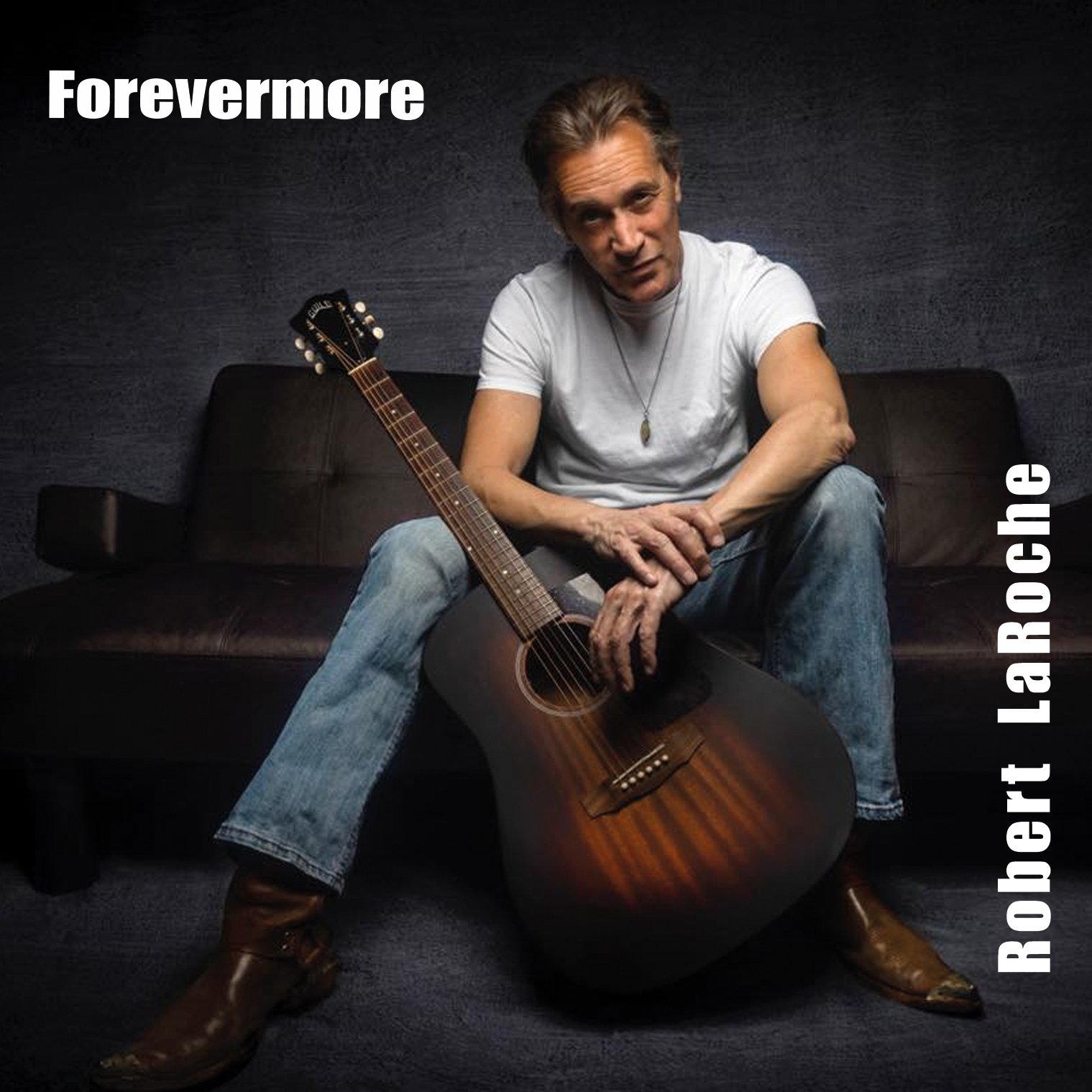
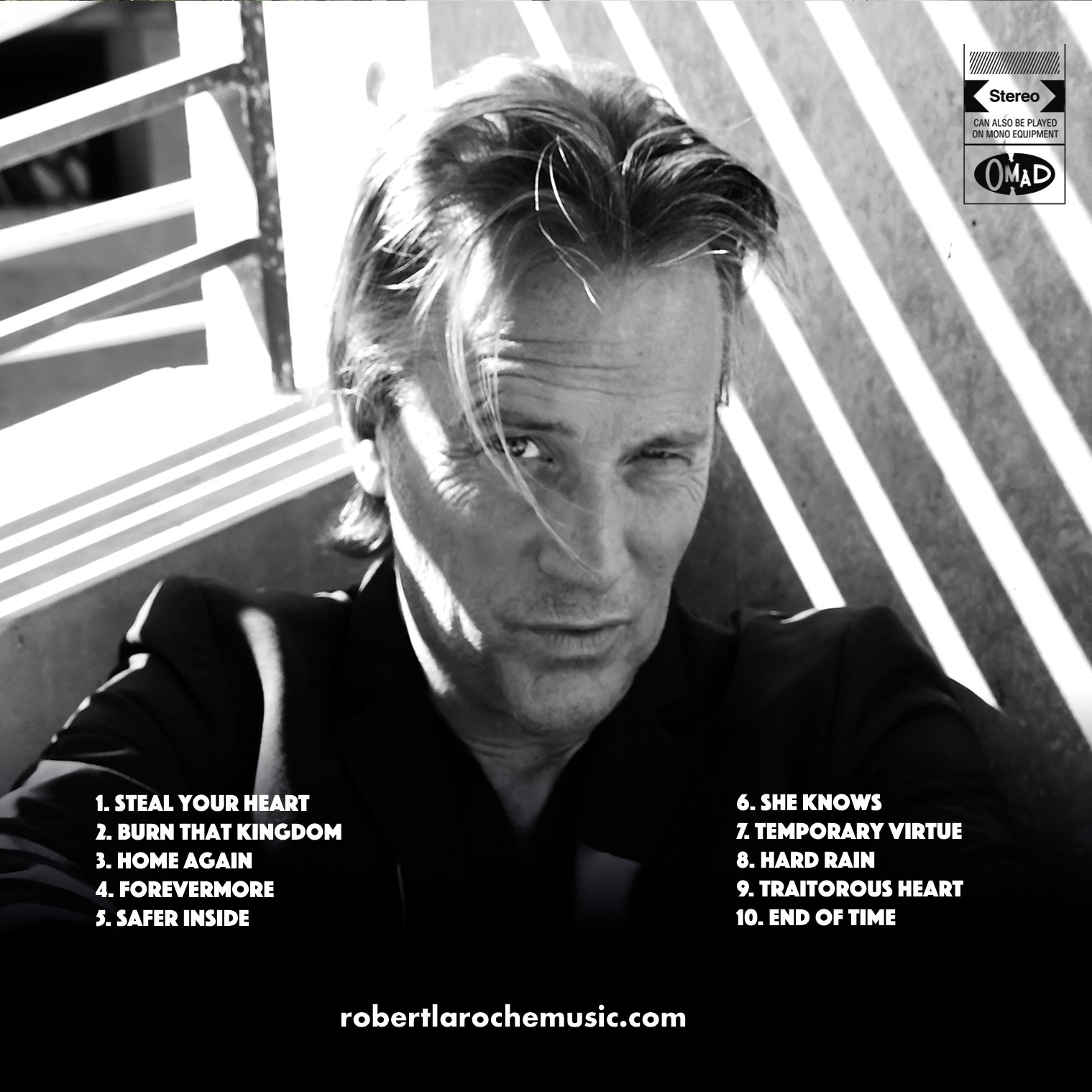
Rust Dust
Facebook - Twitter - Instagram
Twere But It Were So Simple - Release Date March 10. 2023
Purchase CD Here Purchase Digital Download Here
Some artists are deliberate in what they do, while others eagerly accept the mystery of it all. Jason Stutts, who goes by Rust Dust on record, belongs to the latter group, allowing songs to take shape in mere minutes or over the course of years, serving them the best he can with whatever sounds, words, energy and emotions manifest. “I don’t typically sit down to write a song. Sometimes I’m lucky enough to recognize them when they appear,” he says.
Happen they did, for Twere But It Were So Simple. Rust Dust’s second LP for Omad, is a deceptively simple, spacious-sounding LP recorded live in a ramshackle Brooklyn brownstone. The jaunty instrumental eye-opener “Helter Fukov Awakens” segues into some improbable guitar pop, with the “all-lit-up-with-nowhere-to go” gusto of “UFO.” The tasty “Ice Queen Sandwich” and “Speaking In Tongues” vibe together like Robyn Hitchcock cornering Townes Van Zandt at a buoyant, boozy rent party.
Things take a slower, somber turn on the delicately played and achingly sung title track conjuring images of “snakes in my pockets, and a rope around my neck,” and “Sky,” a haunting, heartbreaking collaboration with Omad main man John DeNicola. There’s also a New Orleans-inflected number, “Must Be Jelly”—plucked and blown on banjo and trombone—and a handful of covers, including a driven “You Got To Move,” inspired by the Rev. John Wilkins’ arrangement, and a sparsely elegiac version of Dylan’s “Knockin’ On Heaven’s Door.”
Throughout, the album has a kick of country and an ample serving of blues roots to be expected from a devout guitar geek whose floor-to-ceiling collection includes guitars dating from the 1890’s to the 1960’s. (Full disclosure: Stutts’ day job is repairing and restoring such stuff.) Remarkably, though, the only two guitars used on Twere... are a Godin Multiac, a modern nylon-string electric designed to sound acoustic when plugged in and an old Yamaha nylon. “The Godin is a practical, utilitarian instrument, but, yeah, a pretty odd choice, considering my vintage leanings,” Stutts admits.
It was a shared appreciation for old gear that first brought Stutts and DeNicola together, and in 2017 the Oscar-winning, Grammy-nominated producer and songwriter helmed Diviners and Shivs, the first Rust Dust record. While that album was also recorded live, it got made in DeNicola’s upstate New York studio; the lockdown of the last few years led Stutts to go full-on DIY for the follow-up. “I really enjoyed working in John’s barn, with him and our engineer, Andris J. Balins, on Diviners and Shivs,” he says. “But when these songs felt ready, I just set up multiple microphones and played them through an amplifier. With the exception of “Must Be Jelly,” basically what you hear is how they came out live with a few effects in the mix.”
Maybe it’s not all that mysterious after all. Maybe it’s just that simple.
Diviners and Shivs
Here’s what you’ll get with the outlaw folk of Rust Dust’s Diviners and Shivs: One voice, a few fine old instruments, and an unflinching, all-of-a-piece performance that will reach you in the moment and resonate with historical memory.
Rust Dust, formally known as Ardell Jason Shealy Stutts, is a South Carolina native with a healthy aversion for barbers and liars. He earns his keep repairing and dealing in guitars and amps of a certain age. After bonding with Oscar-winning, Grammy-nominated producer John DeNicola over their mutual affection for this sort of vintage gear, Jason explained his concept for a record.
“A set of songs came together. I rearranged and de-arranged them until they tell the story of Diviners and Shivs,” Jason says. “They seemed to fit naturally with the country, blues and gospel songs I always held dear, and I hoped to record them, live, with someone who wanted to contribute to the sound and feel so that this wasn’t just a ‘dude with an acoustic’ record.”
John was in. “Jason wanted to do this like a performance art piece, a live recording straight to two-track tape, and I thought my barn studio in upstate New York would be the perfect setting,” John says. “While Jason would be the only guitarist and singer, he saw the project as the work of a ‘band,’ with me and our engineer, Andris J. Balins, ‘playing’ the gear.”
So Rust Dust made use of the large hayloft and milk house, placing different mics in various locations to capture subtle nuances. They even used the corn silo as a reverb unit, putting a mic at the top and bottom and sending Jason’s voice and guitar through a speaker. Then they left the building entirely and recorded outside.
You’ll hear this process in the prison-break intensity of the title track and the rawboned blues of “Just Can’t Keep From Crying.” You’ll feel it in the acidic sincerity of “Nothing Hurts Worse.” You’ll know it through a medley that teams Townes Van Zandt’s “Lungs” with Rust Dust’s “Modern Times,” a tragedy for the Trump era with rough and tumble guitar, before seguing into the possible salvation of “Everything Got Softer.” By the time you reach the end of Side Two, with the almost jaunty delivery of “Wayfaring Stranger” and an “Amazing Grace” from your strangest dream, you’ll believe in salvation, goddamnit.
“I hope everyone can listen and dream their own story of Diviners and Shivs. John and Andris made sonic changes live and played the barn, board and tape machine while we recorded straight to tape. It gives the album a cool sound and movement.”
Adds John: “What you hear is simply wonderful songs, with all the excitement and immediacy of a great live performance. Diviners and Shivs harkens back to music that was pure and raw while still being very contemporary—an heir to Woody Guthrie, Bob Dylan and Ralph Stanley that reflects a unique take on the world right now.”
Purchase at iTunes, CD Baby or Omad Records below


First song from the sophomore release by Rust Dust “Twere But It Were So Simple” Free Download Here Free Download

Second song released from the sophomore album “Twere But It Were So Simple” Free Download Here
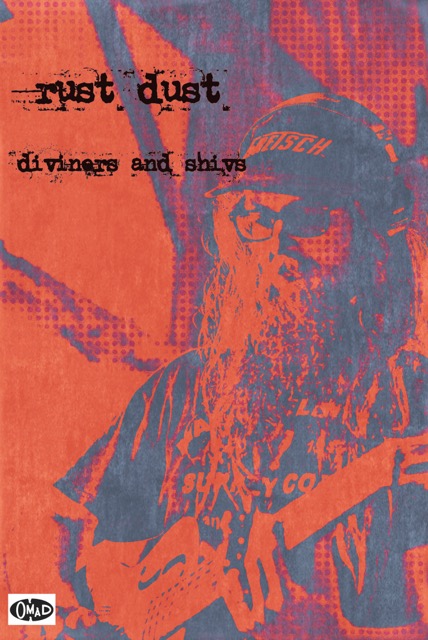




John DeNicola
John DeNicola
She Said
The muse works in mysterious ways. Case in point: John DeNicola. After some five decades in the recording industry, the award-winning songwriter and producer made his first album as an artist in 2019. Fast forward—very fast—to now, for the release its follow-up, She Said. And while DeNIcola’s debut, The Why Because, had him interpreting tunes he’d originally penned for others, She Said was conceived and created for one voice, one touch, and one heart: his own.
“The groundwork laid down on The Why Because gave me the confidence to do another record right on its heels,” DeNicola explains. “I holed up in my barn studio and built these tracks from scratch, playing all different instruments from guitars to synths, sitar to congas. I’m comfortable working this way, yet it was new for me and really fun to write purely about what I wanted to say.”
The phrase, “This time it’s personal” clearly applies, from the dreamy complexities-of-love story of the title track through nods to the Sixties’ and Seventies’ soul and rock DeNicola grew up on. Somehow, though, the more intimate, the more universal the album’s appeal, whether you’re lofted by the gravity-defying harmonies of “High,” hitting the floor with the irresistibly dance-y “Breathe Deep,” or digging into the darker, guitar-driven single “Float on Hope” (and its hand-drawn animated video, which decries the destruction of the Amazon and the earth’s endangered wellbeing at large).
Universal appeal from the guy who wrote “(I Had) The Time of My Life”? Go figure! A Long Island, New York, native, DeNicola began playing in bands as a kid in the 1970s and was a member of the jazz-fusion quintet Flight, which released the acclaimed album Excursion Beyond on Motown. Yet as time went on, he found himself drawn more to a creative life behind the scenes. Collaborating with fellow tunesmith Franke Previte on those “TOML” and “Hungry Eyes,” the two mega-hits from the Dirty Dancing soundtrack — which held the #1 spot on the Billboard 200 albums chart for 18 weeks and ultimately sold more than 60 million copies worldwide — netted DeNicola an Oscar, a Golden Globe, a Grammy nomination, and ASCAP’s Songwriter of the Year award in 1988.
Such success meant freedom, and DeNicola used it to nurture new talent (discovering a little band called Kara’s Flowers, who later changed their name to Maroon 5), supply radio-ready tunes for contemporary chart-toppers while composing for an annual Shakespeare festival, and launch his boutique label, Omad Records. As he puts it: “I had the opportunity to continue in the business and build relationships with people from all aspects of the music world.” Now, a host of those relationships represent on She Said, collaborating on craft and adding some serious chops.
Patti Maloney, one of DeNicola’s favorite longtime cowriters, lent her special way with words to four of the record’s prettiest, poppiest tunes, while Procol Harum’s Keith Reid, responsible for the poetry of “A Whiter Shade of Pale,” provided lyrics for “Battered Cloth,” a bittersweet reminiscence simply conveyed with piano and acoustic guitar. For “Float on Hope” and the stripped down, somber closing track “Sky,” he turned to Jason Stutts, an Omad artist who goes by the moniker Rust Dust.
Although he does the lion’s share of playing on She Said, DeNicola did call on gifted friends to chime in at all the right places. There’s crystalline keyboards from Vinny Jessel, a spectrum of synths from Ray Weiss and ripping guitar from axeman Zonder Kennedy on the post-apocalyptic “Morning Dew,” written by Bonnie Dobson in 1961. (The record’s only other cover is Steve Winwood’s “Can’t Find My Way Home,” which has DeNicola layering on a host of instruments, including cello and tanpura, to remarkably simple effect.) She Said also features a veritable who’s who of percussionists, from DeNicola’s son Jake (drummer for Omad act Fovea) and Chris Ryan, who provided the drum programing on the shimmery “Our Day Will Come,” to alt-rock kingpin Blake Fleming and the legendary Brian Delaney, who’s hit the skins for everyone from the New York Dolls to Wu Tang Clan to Melissa Etheridge. DeNicola even tapped the talents of guys he’s known since his tweens, including guitarist Ken Favre, pianist Alan Zahn and bagpiper Brad Davidson.
Assembling such a stellar cast might be daunting at any time; DeNicola managed it during the grip of a global pandemic. “I’d send a cowriter a basic track with a definite melody, possibly a few chorus lyrics, and hope that it painted a picture of what I was going for,” he says of the long-distance dynamic. “For the musicians, it was largely the same, except the tracks were more fleshed out.”
Beyond the logistics of lockdown, the crises of 2020 lit a fire in DeNicola, as they surely did for so many artists in that unprecedented year. “It’s hard to explain why and how adversity or turmoil can be fertile ground for creativity,” he says. “These songs came together organically and rather easily, revealing themselves on an unconscious level, yet were nonetheless written in the midst of a pandemic, a challenge to our democracy, and some stark realizations about race relations—an overriding disappointment in the way Americans see each other.”
So while in no way planned as a “concept” project, the song sequence of She Said does have a story to tell. “There’s a narrative arc that begins with loving someone and loving each other as humans, countered by a warning of what’s happening to our planet and in our country, that winds up with at least the possibility of redemption,” says DeNicola, who delivers each song in his gently endearing, honest and uncontrived voice. “Rather than a string of singles, I’m hoping that this comes off as a full album that takes the listener on a bit of a journey.”
Pack a full heart, an open mind and a pair of eager ears—and come along to hear everything She Said.
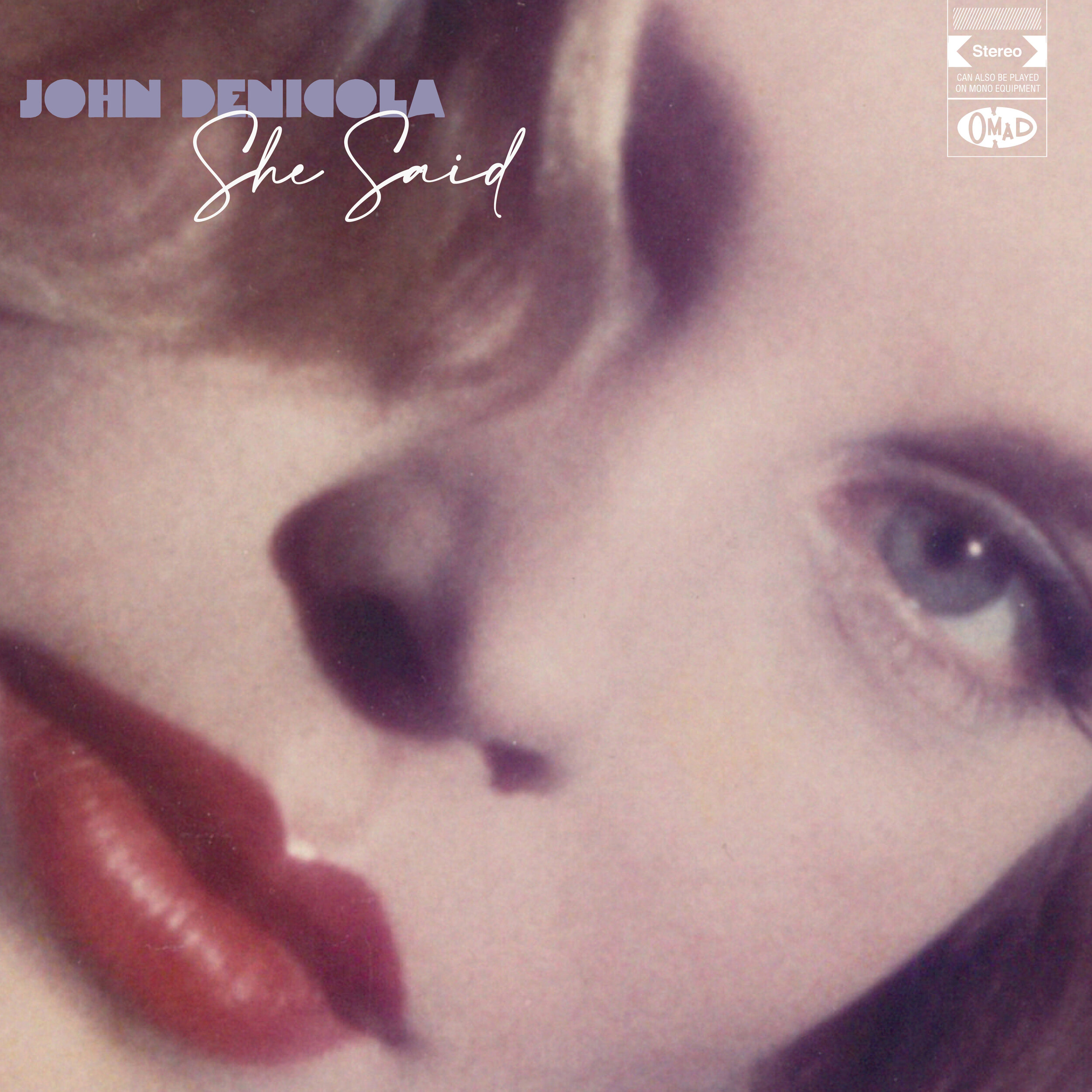

Video from the sophomore release of the album also titled "She Said" by John DeNicola . Video written and directed by Anima Works.
"a surreal image driven short film using various frames within frames as composition"
https://www.omadrecords.com/store/v2p...
--- Cast ---
Wanderer - Debra DeNicola
Cowboy - Jake Zinkevich
Priest - Zonder Kennedy
Prairie Woman - Lauren Stander
--- Crew ---
Directed by : Anima Works LLC
Directors of Photography : Jake DeNicola and Hil Steadman
Editors : Jake DeNicola, Hil Steadman and Bennett Torres
Colorist : Dante Pasquinelli
Color Producer: Sam Cesan
VFX: Dylan Calder Stein
Production Design : Pablo Tamarin
Set Builder : Pete Powers
Still Painting : Sophia Baraschi
Gaffer : John Izarpate
Key Grip/Electric : Sean Dolnick
AC/Loader : Andre Fernandez
PA : Henry Dolan
Drone Photography : Jessica Vecchione
Title Design : Harrison Lipton
Color processing and scanning : Metropolis Post
Special thanks to : David and Lisa Frame, Caily Herbert, Tim from down the hollow for the cool truck, Fanny and Eugene.
---Music---
(John DeNicola/Patti Maloney)
Synths, Strings, Vocoder, Bass, Electric Guitar, Vocals - John DeNicola
Electric Guitar - Ray Weiss
Drums - Brian Delaney

Synths, Guitars, Bass, Vocals - John DeNicola
Fender Rhodes - Max Weigel Drums - Jake DeNicola
Background Vocals - Arwen Lewis, Cassidy Ladden
Written by John DeNicola and Franke Previte
Mixed by Ed Stasium
Main Cinematography - Jake DeNicola
Individual Face mask shots - Everyone that's in it on their Smartphone
Video edited by David Frame
Thanks to all the friends, brave healthcare workers and family with face masks. Helping people stay safe.
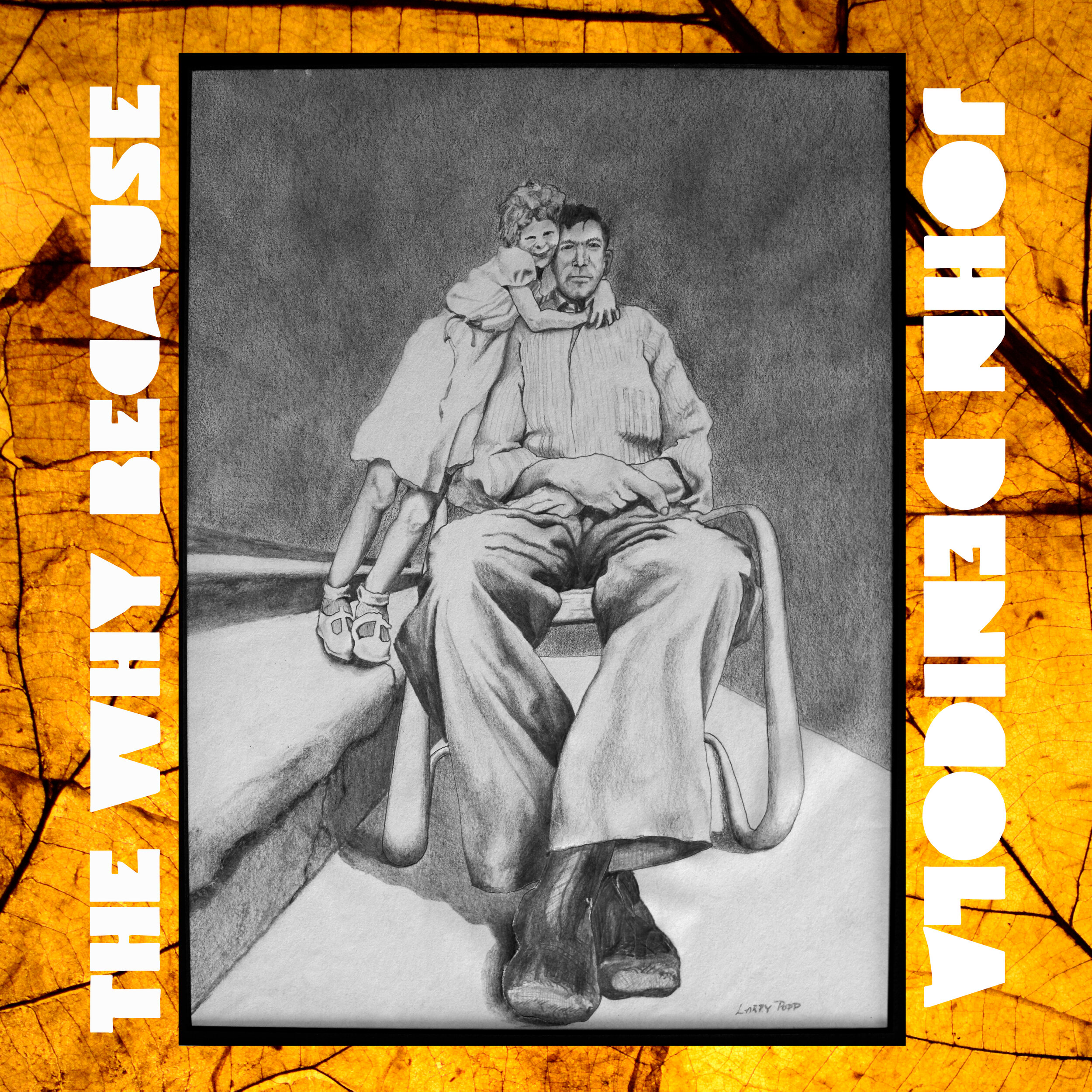
The term tunesmith can be bandied about rather indiscriminately. But when your best known work is beloved by billions and your lesser known stuff is as indie as it gets, the title is earned, your name is John DeNicola—and your retrospective record has arrived. Interestingly in DeNicola’s case, that retrospective record is also his solo debut. “I always wrote for bands I was in, even sang some lead vocals here and there, but I never aspired to be a singular artist,” says the industry icon, an award-winning songwriter and producer. “Until this unfolded...”
This is The Why Because, a collection comprised largely of DeNicola originals—including a little number called “(I’ve Had) the Time of My Life.” A subtle yet deceptively complex album of simply beautiful songs, The Why Because has been brought to fruition by DeNicola’s exacting ears, light touch, superb musicianship and gently endearing voice. There’s the bouncy pop gem “Everything You;” “All in the Hands of Grace,” a remembrance rendered in delicate guitar and pattered percussion; and the dark, driven “Brand New Day.” There’s also that aforementioned “little number,” “TOML” as you’ve never heard it before, stripped down and pure as possible, the true test of a great song.
Why? Because great songs are DeNicola’s bottom line. The Long Island, New York, native started playing in bands as a kid in the 1970s; by 1980, as bassist in jazz-fusion quintet Flight, he’d signed to Motown, which released the acclaimed album Excursion Beyond. Yet as time went on, he was drawn more to a creative life behind the scenes. “As I moved increasingly into producing and building tracks, I found myself writing with other vocalists in mind,” he explains.
Then a friend introduced DeNicola to fellow artist-turned-songwriter Franke Previte, and musical magic happened. Together they wrote “Hungry Eyes” and “TOML,” both selected for the 1987 movie Dirty Dancing and its soundtrack, which held the #1 spot on the Billboard 200 albums chart for 18 weeks and ultimately sold more than 60 million copies worldwide. “TOML” netted DeNicola both an Oscar and a Golden Globe, as well as a Grammy nomination; in 1988 he was named the ASCAP Songwriter of the Year. “It was obviously a turning point in my career as a songwriter,” he says of “TOML.” “It helped build relationships with people from all aspects of the music world and allowed me the opportunity to continue in the business.”
Yet that continuation was by no means a straight and narrow path. On one hand, DeNicola was discovering and producing new bands, like Kara’s Flowers—who later changed their name to Maroon 5. On the other, he was composing for an annual Shakespeare program at the West Kortright Centre (an arts and community center in the Catskills). He wrote radio-ready tunes for chart-toppers and founded Omad Records, his decidedly “alternative” boutique label, producing the likes of Fovea (his son Jake’s genre-defying band), power popsters The Sighs and legendary Moby Grape founding member Peter Lewis.
With that kind of career, it’s understandable that it took awhile for DeNicola to even consider making a record of his own. In fact, that it happened at all is kind of a fluke. Having recently built a recording studio in an upstate New York barn, he wanted to test out the “big room” acoustics in regard to drums. “So we mic’ed up the kit a la early Beatles, laid down the tracks for the Moby Grape song ‘I Am Not Willing,’ and just for fun I gave it a shot singing,” he recalls.
Next, he decided to demo his own composition, “You’re The Only One,” which Steve Holy recorded for the Avenging Angelo soundtrack. “I heard it in my head like a Glen Campbell/Jimmy Webb song and wondered, ‘Who can I get to sing it?’” DeNicola says. When the answer was “me...?” he finally got the notion to be the voice of other songs he’d written.
And so The Why Because includes the folk-inflected “In God’s Shadow” (which John Waite gave a slick shine to on his 1995 album Temple Bar), the winsome “Wait” and “Butterfly,” an offbeat instrumental on which DeNicola explores some favorite Eastern instruments. There’s his synth-tinged version of “Hungry Eyes” (Eric Carmen’s Dirty Dancing hit) and his bare-bones “TOML,” with jazzy acoustic guitar and beautiful, nuanced brass. Plus, a dreamy cover of the R&B classic “People Make the World Go Round,” its horns and strings period perfect, and a soaring rendition of that Peter Lewis piece, as close to flawless as a rock song can get.
No surprise, the record features a remarkable roster: Waite, Lewis as well as his singer-songwriter daughter Arwen Lewis, Mickey Madden (Maroon 5), Glen Burtnick (Styx), bluesman Zonder Kennedy and Brian Delaney (drummer with everyone from the New York Dolls to the Wu Tang Clan). “I enjoyed recording and producing this record more than anything I’ve ever done,” DeNicola says. “It started as a whim but as it took shape it became clear that I do have a perspective that’s different from others who’ve done my songs. I was lucky enough to enlist some incredibly talented friends yet also play most of the instruments—which was a ton of fun, locking myself in my studio with guitars, keyboards, drums, sitar, marimba. Most of all it was great to ‘find my voice’ as an artist after years of getting into other artists’ heads.”
Now, with The Why Because, it’s your turn to find the voice of the man whose music you already know so well...or think you do.
Tommy Pluta
Musician/Songwriter/Producer Tommy Pluta started playing drums at the age of 12.
In 1983 at the age of 16, the Massachusetts native joined Robert LaRoche as The Sighs drummer, eventually moving to bass in 1986 as the two began to write and sing together.
After 8 years of touring the college/club circuit of New England, The Sighs were signed to Charisma Records and released their debut CD “What Goes On” in 1992. The disc received fantastic reviews, and the single “Think About Soul” was a staple on “Modern Rock” radio charts throughout the summer of 1992. The band toured America extensively with such acts as The Spin Doctors and The Gin Blossoms.
After the untimely fate of Charisma Records, The Sighs released “Different” in 1995 on NYC indie label Big Deal Records.
In 1995, Pluta co-founded the Active Rock band Mary's First as lead guitarist and co-writer. MF played throughout New England and released a self-titled EP in 1996 on NYC indie label OMAD Records.
The Sighs regrouped in the fall of 2016 to record for the first time in two decades. The subsequent releases, a single titled Wait On Another Day (2017) and 5 song EP Tearing My Heart Again (2020, pre-pandemic), received glowing reviews internationally. Both are on NYC indie label OMAD Records.
In June 2021, Tommy will release a five song EP entitled “Breathe” on NYC indie label OMAD Records. Pluta will play most of the instruments, and you can bet that his first solo effort will be packed with hook heavy guitars, memorable melodies, and The Sighs’ signature harmonies. Tommy’s influences are Cheap Trick, Foo Fighters, Posies, XTC, Beatles, and 70’s through early 80's rock.
First song “Breathe” to be released on January 29, 2021. 5 song EP Breathe to be released in November 2021 on CD.

FOVEA
Steve Shaw - bass, guitar, vox
Max Weigel - guitar, vox, keys, electronics
Jake Denicola - drums, vids, foley
Halley Furlong - Mitchell - vox, keys, violin
Facebook - Twitter - Instagram
Bandcamp - CD Baby - YouTube - Spotify
The function of the fovea—a cone-laden well within the retina—is discernment of depth and detail. And for New York-based four-piece Fovea, depth and detail are all. On the surface you get the giddy whimsy of boy-girl vocal volleys and keyboard quirks, but the more you listen, the further you’ll delve...and the more you’ll perceive.
Perhaps the best part? Fovea’s music—an aural kaleidoscope spinning rock, pop, jazz, ambient and psychedelia—will be yours and yours alone. “There’s a universality to what we do that lets listeners understand our songs in their own way,” says Halley of pencil me in, the band’s full-length debut for boutique label Omad.
A daring joyride fueled by “real” instruments and chimerical synths, pencil me in is as prickly as it is pleasing. First single “Cost Of” is lounge-y and lissome, its seductive ease provoked by intricate rhythms. Cool jazz cornet and teasing high hat swirl just ahead of melancholy on “S’appeller,” while the drum-propelled spectral dream state of “Always” may be as close as fovea comes to a true love song. And the buoyant “Don’t Play” does play — with ideas of desire and independence, its “he says/she says” tag team stirring the pot in, under and around its peppery pop.
The band members—drawn to each other despite sonic backgrounds and influences as far flung as hip-hop to opera—began developing their impossible-to-pin-down sound while at Skidmore College in 2014. From the start and to this day, their approach has been collaborative. “Someone comes in with an inkling, and we’ll workshop it through improvisation or discussion,” Max explains. “We all like to toy and tinker with structure, groove and lyrics,” adds Steve. “Our aim is to retexture familiar sounds in a way that opens ears to new applications and permutations of ‘traditional’ pop music.”
If that makes for a certain complexity, so be it. “Our stuff is pretty involved, often with multiple changes and parts within a song,” says Jake, admitting, “We definitely don’t make it easy for listeners. We want to challenge you a bit.”
Don’t expect to be spoon-fed literal lyrics either. “We have no intention for how our words should be received,” says Halley, who with Max pens the lion’s share of Fovea’s abstract poetry. “We’d rather encourage interpretation and connection than impose anything specific.” Yet Max allows: “We do a lot of social- and self-examination—the band is a musical means to explore ourselves and our surroundings—so it would be cool to inspire our listeners to do the same.”
Fovea did just that with their 2016 EP Fear Of, which Sound Review called “A statue of sound, a monument of creativity and true expression.” The single, “Puppy,” had a self-produced video (check it out—we defy you to wipe that smile off your face https://www.youtube.com/watch?v=a5HFzO6S82o) and helped the band land a coveted session at sneaker giant Converse’s Rubber Tracks studio in Boston. Fovea also gigged around a bunch, offering their growing fan base a whole other experience. “We have a dreamy, subdued effect on record, but we’re louder and more aggressive live,” says Jake. “Lots of feedback, distortion, digital effects—a much wilder realm.”
Sweet and striking. Twist and turning. Fun and confounding. In your face at a venue near you; in your space with pencil me in. Do yourself a favor and make a date with Fovea. Put it on your calendar. In ink.
From Glory in Sound Review Jan,12,2017
Fovea is an electronic dream pop psych rock band from New York, New York. A little on the lounge-y side, a little on the jazzy side, Fovea’s summer 2016 release is well composed and a joy to listen to. It’s engaging, with its delicate guitar layers and angelic vocal harmonies. It’s subtle in it’s percussive expression, never stepping out of place but always keeping perfect time. Not to say there isn’t some amazing drum tracking here, there really is. The bass and drums hold the wild keyboards and synth. The back and forth between the male and female singer is refreshingly new and exciting.
This is the kind of pop music sound that I always find myself in admiration of. The catchy, creative melodic flow of Fovea is just on another level than can be found in mainstream music. It’s got all of the fun and happy pop sound without a lack of content, Fear Of is practically bursting with artistic merit. I keep coming back to the word art, I think that’s what this album is to me. The way the sounds layer over each other, especially in the song. “TAIW.” It’s masterful, carried throughout by the skilled guitar and synth playing. Every part of Fovea comes together to create a otherworldly, magical whole.
A statue of sound, a monument of creativity and true expression that will easily stand the test of time. Fovea is different, different from anything I’ve ever heard before. With all the musicians in the world, we must remember that our songs are still unwritten. Only we can write them, and they are still important. You, the musician, artist, creator, whatever it is that drives you is important. The work of your hands and mind is significant, and I am reminded of this more and more with each new amazing band I am fortunate enough to hear. Fovea knows how to make a good album, and I can’t recommend it enough.


"An aura kaleidoscope spinning rock, pop, jazz, ambient + psychedelia making for a daring joy ride." Many thanks to @glidemag for the premiere of @foveaband "Cost Of"! #linkinbio gets you to our site for a listen!! Read the article Here




The Medics
Don Von Conrad met Will Vunderink in some summer in the past where they started making potions made of chemicals and music. They played together in several other groups until at a party; the Don met Cameron Wisch and Adir Cohen. The three spent much time bonding over a keyboard, bombarding their own fraction of the board with their fingers. The first legitimate band practice consisted of massive explosions and ferocious dive bomb attacks; they then decided to be the Medics.
Produced by John DeNicola. Recorded and Mixed at Shorefire Studios, Long Beach, NJ. Studio Engineer - Joe DeMaio. Mixed by Joe DeMaio, John DeNicola & The Medics. Mastered by Leon Zervos at Sterling Sound, NYC. All Songs written by Don Van Conrad except "The Bounce" written by Don Van Conrad & Will Vunderink. ©2005 Holy Helium Publishing. Art Direction & Design by Joe Ahearn
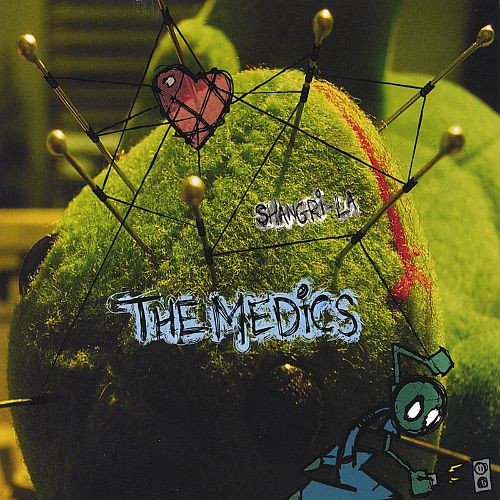
Le Rug
"...Right off the bat, Gloss bombards you with sound. It feels like being dropped in the middle of Mario Kart on mushrooms, and fittingly, it’s the rainbow track without the sides. It’s loud, fast, and colorful. Weiss pounds on the keyboard with abandon, layering his Ben Folds by way of Doug Martsch voice on top of layers of noise. Vocal hooks alternate with riff hooks until the finish line. Gaxinthaw picks up from there and turns it up a few notches. It’s the same formula, only louder and faster with guitar in the forefront instead of the keyboard, Weiss alternately yelling and harmonizing. Bomb sounds like it would kill live, as it builds to an explosive crescendo before coming to an abrupt end...."

Acoustic Junction
Reed McGregor Foehl: Lead Vocals, Guitar
Curtis Thompson: Bass, Guitar, Mandolin, Vocals
Tom Diehl: Drums, Vocals
Tim Roper: Violin, Keyboards, Organ, Flute, Harmonica, Vocals
At the midpoint of Acoustic Junction's first release of all-new studio tracks in four years, songwriter Reed Foehl joyfully exclaims "Oh me, oh my, she's got that look back in her eye! Ooh wee, it's beginning to feel like it used to be!" And indeed it is. Nearly two years after recasting the beloved grass roots moniker they had briefly shed in exchange for ironically loose-fitting Fool's Progress, Boulder's neo-folk outfit has completed their triumphant return from a major label faux pas that nearly cast them into rock oblivion. With the confusion of the name change behind them, the gifted folk-pop quartet is ready to share the spirit of their newborn freedom with the world. - by Rob "Gumby" Hillard, Editor, Deadheads Music Calendars
Or Send your check or money order for $15.00 U.S. for the CD made payable to:
OMAD
52 Grove St. Suite 3A
New York, NY. 10014
Please allow 4-6 weeks for delivery.Please indicate which artist and which album you would like. Orders being shipped outside the U.S. will require extra postage and handling. E-mail us your International address so that the postage can be calculated.

Living Serious
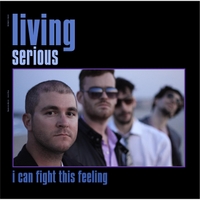
Even at the last of the small dance clubs, they were starting to play music that brought the dancers to a halt, like hunters in a ballet some witch has cast a spell upon; songs so raw, barbed, snotty we would hang our heads and walk off the dance floor
https://www.cdbaby.com/cd/livingserious
The Sighs
The SIGHS is an American power pop band from Holyoke, Massachusetts. They built their reputation playing clubs around New England over an eight year period starting in 1982. It wasn't until 1990 when they played the China Club in NYC that they caught the ear of producers Tommy Allen and John DeNicola, eventually signing with Charisma Records in 1991. The SIGHS brand of power pop is influenced by bands like The Beatles, Cheap Trick, The Everly Brothers and many more. Their debut CD "What Goes On" was released in 1992 on Charisma Records, and the bands follow up CD "Different"was released in 1996 on Big Deal Records. In December 2016 they released the CD “Wait On Another Day” followed by the EP “Tearing My Heart Again” in 2019.
What Goes On is a great slice of '90s power-pop that should appeal to any fan of the genre. Always a little more on the rock side of the pop/rock fence, the Sighs deliver an album full of classic, big drum beats, British Invasion-style vocal harmonies and huge guitars. - AllMusic Review: Pemberton Roach
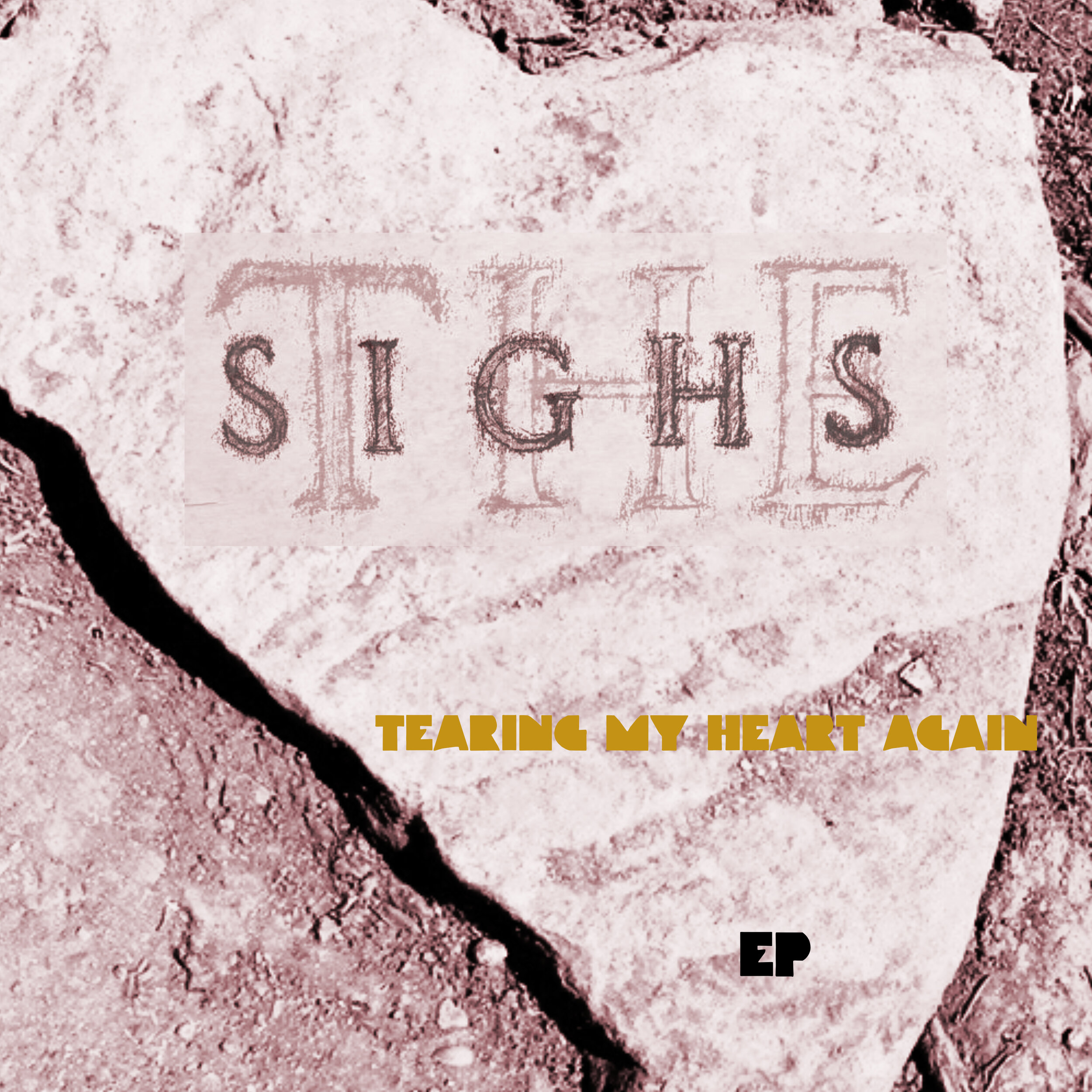
The Sighs "Tearing My Heart Again"
From Destroy/Exist 3/13/20
A great power pop act with a history that takes them back to the eighties, The Sighs reformed after a very long break and released their first album in many years, 2017's Wait on Another Day. Three years later the band come through with a new EP of entirely new material, and introduce it with the very fine, Tearing My Heart Again.
"We were each other’s family for years," lead guitarist Matt Cullen about the time the band has been inactive. "I’ve played with a lot of different people since then, but there’s really nothing like playing with guys who you’ve known for decades."
Vocally harmonious, swooning and memorable, the new song calls to mind the effervescence of The Beach Boys, while its thin layers of subtle wistfulness point to the darkly pop romance of Big Star. Like something straightly out of power pop's heyday in the seventies, Tearing My Heart Again is a shining example of a three-minute pop tune with right amounts of splendor and dramatics, and it doesn't lack anything compared to the acclaimed band's earlier material.
The Sighs are Tom Borawski (drums), Matt Cullen (lead guitar, vocals), Robert LaRoche (lead vocals, guitar) and Tommy Pluta (bass, vocals). The fresh five-song EP, Tearing My Heart Again, releases April 14th, 2020 through Omad Records.
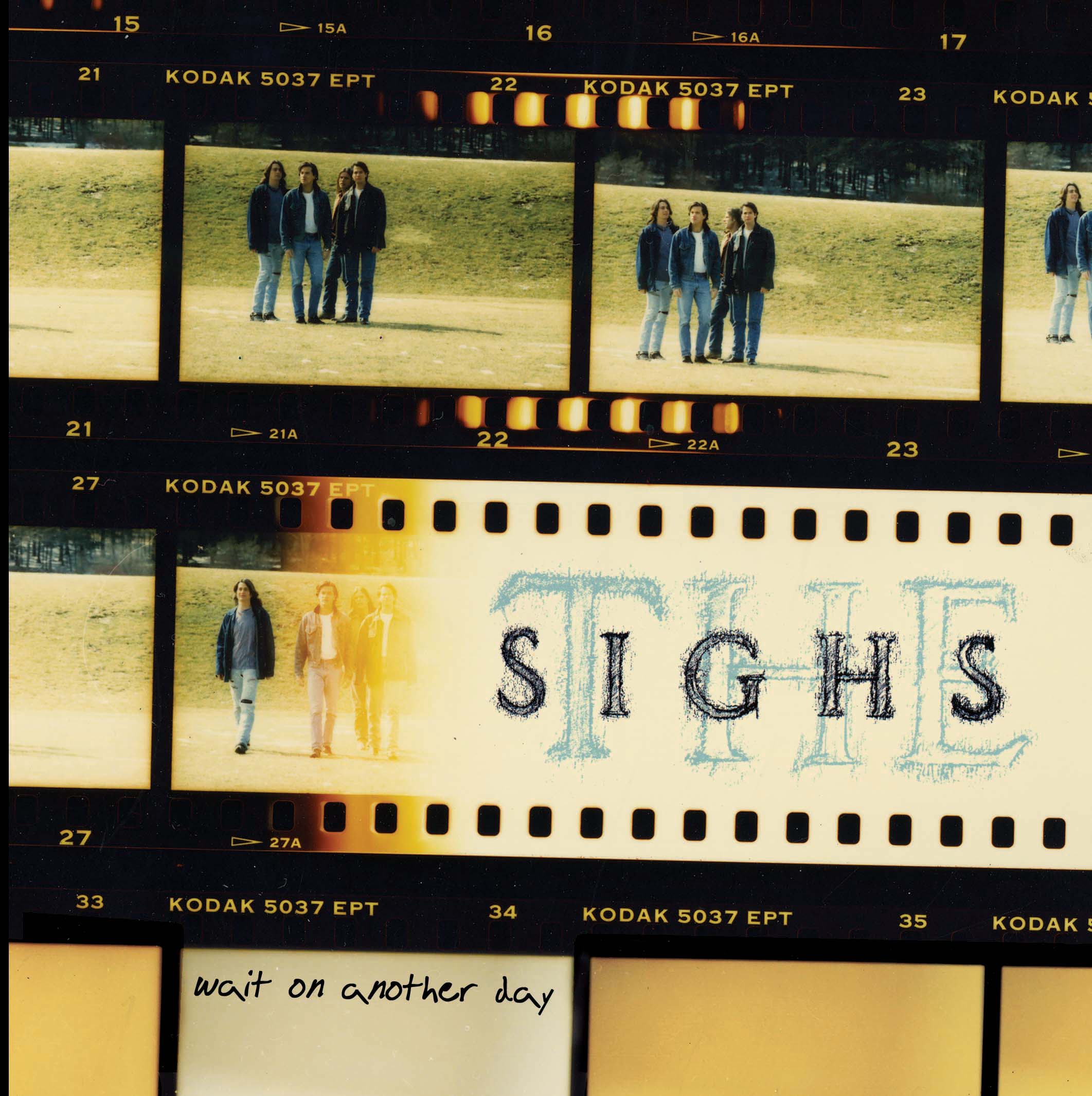
The Sighs
Tom Borawski (drums) / Matt Cullen (lead guitar, vocals) / Robert LaRoche (lead vocals, guitar) / Tommy Pluta (bass, vocals)
More than two decades after releasing their last album, The Sighs return with a third full-length that brings a brand-new vitality to their harmony-drenched guitar driven-pop. Once destined to be a lost record, Wait on Another Day finds the Massachusetts-bred band drawing from an unearthed batch of demos and dreaming up a fresh sound that’s hook-heavy and full of heart.
The Sighs’ first release since 1996’s Different, Wait on Another Day came to life after Cullen stumbled upon a box of analog tapes recorded at their old band house back in the ’90s. Once Cullen had shared the demos with his bandmates and their longtime producer John DeNicola (an Academy Award winner known for co-writing “(I’ve Had) The Time of My Life”), The Sighs decided to meet up in DeNicola’s barn studio in Upstate New York and revisit a handful of the tracks.
“We went into the studio thinking we’d only do a few songs, but it all came together so well and we were having such a great time, we ended up making a whole album,” says Borawski. “It really just took on a life of its own.”
As heard on each cut from Wait on Another Day, that spontaneity brought a kinetic power to the recording process—an effect that’s intensified by The Sighs’ unwavering chemistry. “All the years of playing together left a permanent mark on us,” says LaRoche. “It wasn’t too difficult to tap into our musical and personal bond again.” The band recorded live during their five-day session, channeling the raw energy that made them a must-see act throughout the ’80s and ’90s. “Everything had more of a spark to it than when we made What Goes On, where we put all the songs under a microscope and tried to get it all completely perfect,” notes Borawski, referring to The Sighs’ 1992 debut release for Charisma/Virgin.
Throughout Wait on Another Day, The Sighs explore what Pluta calls “the same things we’ve written about in the past: girls and getting kicked around, hopes and dreams and falling in love.” While Cullen’s intricate guitar work and LaRoche’s warm vocal performance deepen the album’s melancholy mood, the band’s powerful rhythms and indelible melodies ultimately brighten each track. Proving the scope and nuance of The Sighs’ songwriting, Wait on Another Day delivers the hypnotic guitar lines and psychedelic tones of “Words of Love,” the swinging tempo and sunny melody of “Summertime Roses,” and the heavy riffs and savage drumming of “Socialite” (a song about “a brief romance with a girl from a higher social class than I,” according to LaRoche). Another standout, the finely textured, sitar-enhanced “Love from Lisa” recalls Revolver-era Beatles (“We all grew up Beatles freaks, and there’s really no denying that on this record,” Cullen points out). And on the title track to Wait on Another Day—a serenade to “a lovely gal with a thick Boston accent,” says LaRoche—The Sighs offer up a wistful piece of alt-pop that’s undeniably classic.
Formed in Western Massachusetts in 1982, The Sighs began with LaRoche and Pluta—two lifelong musicians who bonded over their mutual love of harmony-driven acts like The Beach Boys, and soon learned that their own voices blended together beautifully. Later adding Borawski and Cullen to the lineup, they quickly made their name as an unforgettable live band. “One luxury of living in Western Mass is that we played all the colleges and clubs for years and years,” says Pluta. “By the time things started happening for us we were primed for it—we sounded really tight and everything was just spot-on.” After crossing paths with DeNicola and his production partner Tommy Allen at New York City’s China Club, The Sighs signed with Charisma/Virgin, released What Goes On to critical acclaim, and toured with such artists as the Gin Blossoms and Dada.
Following the release of Different, each of The Sighs started to strike out in his own direction: LaRoche became lead guitarist and co-writer for singer Patricia Vonne, Cullen worked as a studio musician and touring guitarist for artists like Lloyd Cole, Pluta co-founded active-rock band Mary’s First, and Borawski drummed for the Northampton-based Angry Johnny and The Killbillies. But despite going their separate ways, the band kept in close touch and gradually began playing hometown reunion shows each year at Thanksgiving. “We were each other’s family for years,” says Cullen. “I’ve played with a lot of different people since then, but there’s really nothing like playing with guys who you’ve known for decades.”
With their connection rooted in a pure passion for music, Wait on Another Day promises to thrill The Sighs’ longtime following and the crop of new fans who’ve discovered the band online in recent years. It’s exactly that passion that makes each of the album’s long-buried tracks somehow feel truly timeless. “These new songs were already pretty well-ingrained in us, but at the same time they all felt fresh and new—like we were just playing them for the first time today,” says Pluta. “In a lot of ways it’s like we never put it down, and I think you can really feel that in the music.”
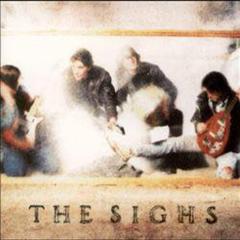



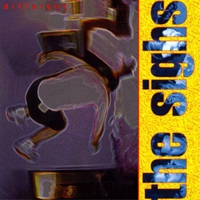
90's Power Pop with heart and soul. Originally released in 1996 NOW AVAILABLE AGAIN




